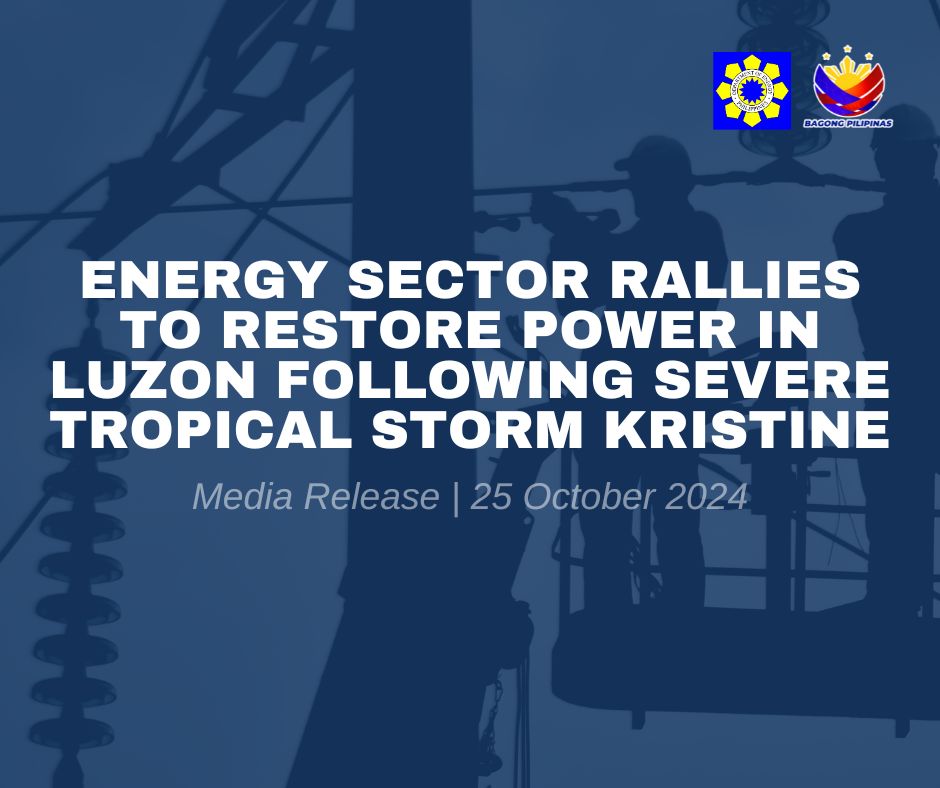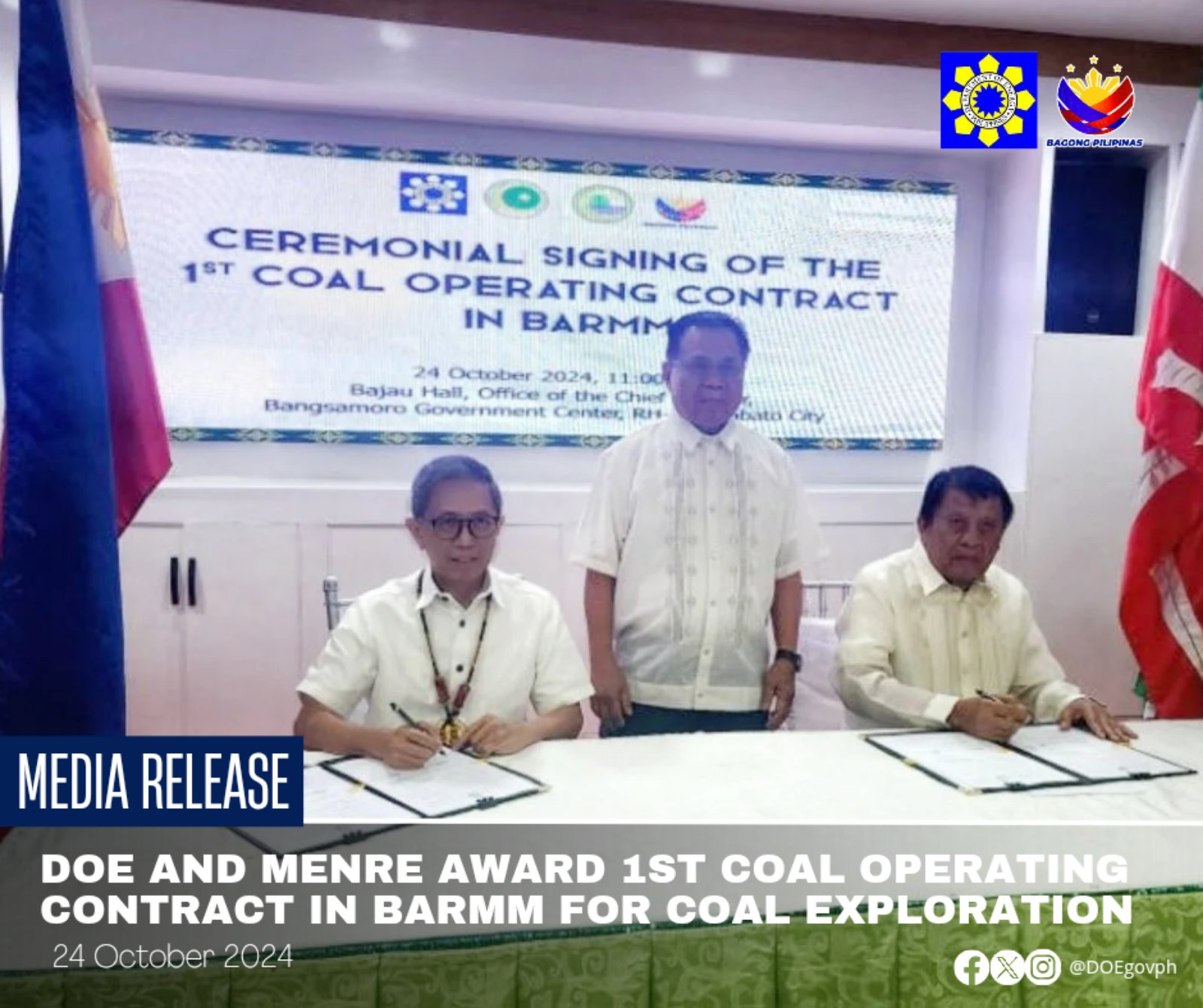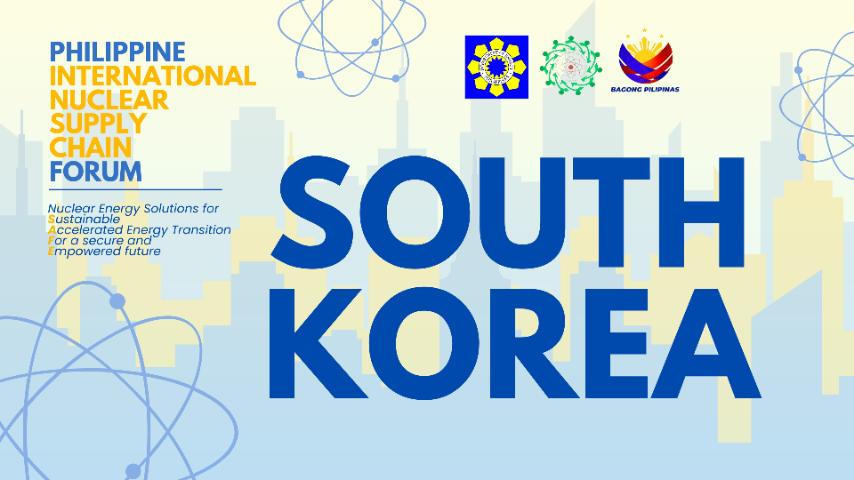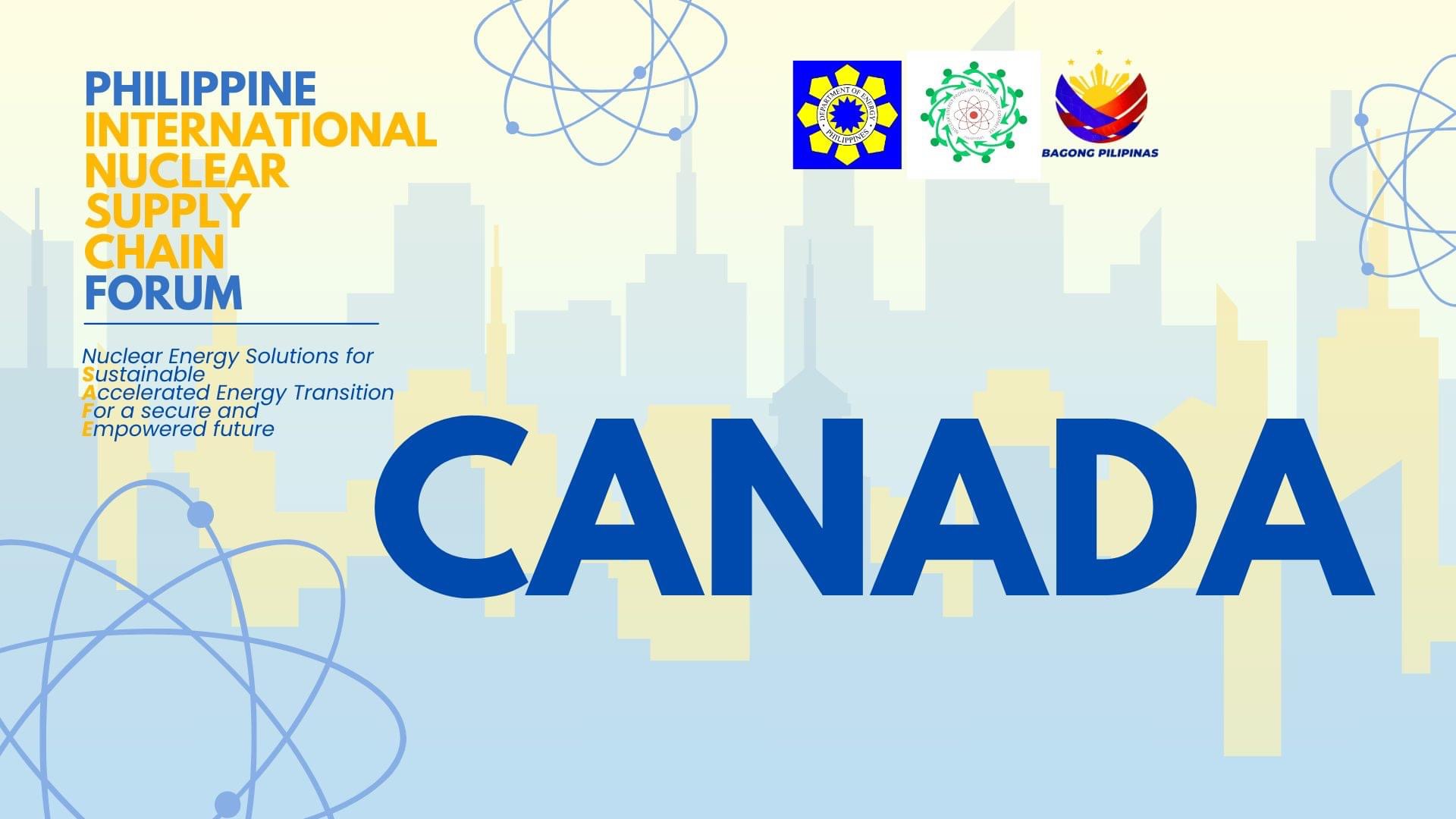The Department of Energy (DOE) continuously monitors the progress of renewable energy development projects to ensure their timely implementation.
The DOE's approach includes conducting periodic evaluations and implementing updated guidelines that streamline processes and promote efficient project execution. These updated guidelines are designed to simplify administrative procedures, reduce delays, and encourage accountability among developers.
"The administration of President Ferdinand Marcos Jr. is committed to ensuring the efficient and timely execution of renewable energy projects by regularly assessing the progress of these projects and refining regulatory framework. If any contracts are deemed non-performing, we will open them up to new developers who can effectively bring these projects into fruition. This strategy not only accelerates the development timeline but also strengthens investor confidence in the country’s renewable energy goals," Energy Undersecretary Rowena Cristina Guevara said.
In June 2024, the DOE released the revised omnibus guidelines, which governs the award and administration of renewable energy contracts and the registration of renewable energy developers. This process helps to identify and filter out non-serious developers, paving the way for legitimate developers committed to constructing renewable energy projects efficiently.
Currently, at least one-hundred five (105) renewable energy projects are being processed for termination due to non-compliance with project timelines. The majority of these contracts were awarded in 2017 and 2019. Common reasons for project delays include failure to secure possessory rights or system impact studies (SIS) indicating inability to connect to the grid.
Out of the total 105 projects, eighty-eight (88) are either delayed in their pre-development timeline or not progressing at all. Among these 88 projects, fifty-three (53) are solar, seventeen (17) are hydropower, ten (10) are wind, five (5) are geothermal, and three (3) are biomass.
The DOE is implementing a clear contract termination process for renewable energy projects. In the case of existing solar energy service contracts, developers have two years to complete the pre-development stage, which includes obtaining permits, conducting surveys, performing feasibility studies and securing possessory rights. Should a developer fail to submit the declaration of completion (DOC) or demonstrate reasonable efforts within this timeframe, the DOE - Renewable Energy Management Bureau (REMB) will issue a show-cause order to request an explanation for the delay. Valid reasons for the delay, such as force majeure, may be allowed for an extension. If the reasons are insufficient or the developer does not respond, the REMB will recommend to the Secretary of Energy the termination of the contract.
The developer will also be required to fulfill all financial obligations, such as performance bond, payments for training commitment and development assistance, as provided under the service contract.
The revised omnibus guidelines have introduced new opportunities for developers to improve their work program. One significant change is the requirement to obtain a certificate of authority (COA) before signing a renewable energy contract.
The COA is a critical step in the development process, as it empowers developers to secure the necessary permits and conduct essential surveys and pre-feasibility activities even prior to the commencement of the official 25-year contract. By allowing these activities to take place earlier, developers can better prepare for project implementation and address potential challenges proactively. This streamlined approach not only accelerates the project timeline but also enhances the overall efficiency of the development process.
The COA is valid for five (5) years for offshore wind projects, three (3) years for biomass, geothermal, hydropower, ocean and onshore wind projects, two (2) years for floating solar, and one (1) year for land based solar projects.
Additionally, the revised omnibus guidelines simplified the process for obtaining incentives for renewable energy projects. Developers may now secure a certificate of registration (COR) from the DOE after confirming the commercial viability of their projects. In the case of biomass and solar energy projects, developers can secure the COR after achieving financing closure.
The DOE is also streamlining the permitting processes through its Energy Virtual One-Stop Shop (EVOSS) System. Currently, several processes are in the pipeline for incorporation into the EVOSS System, now at various stages of development, either further streamlining, system development or testing.
"These streamlined procedures are designed to promote investments in the renewable energy sector by reducing bureaucratic hurdles, and avoidance of service contract termination, ultimately supporting our country's transition to a more sustainable energy landscape," Undersecretary Guevara said.
As of June 2024, at least 1,435 service contracts with a total potential capacity of more than 156,700 megawatts had been awarded to renewable energy developers. 6,100 MW of these service contracts have already been installed.
The country aims to increase the share of renewable energy in the generation mix, targeting 35 percent by 2030 and 50 percent by 2040. ###




